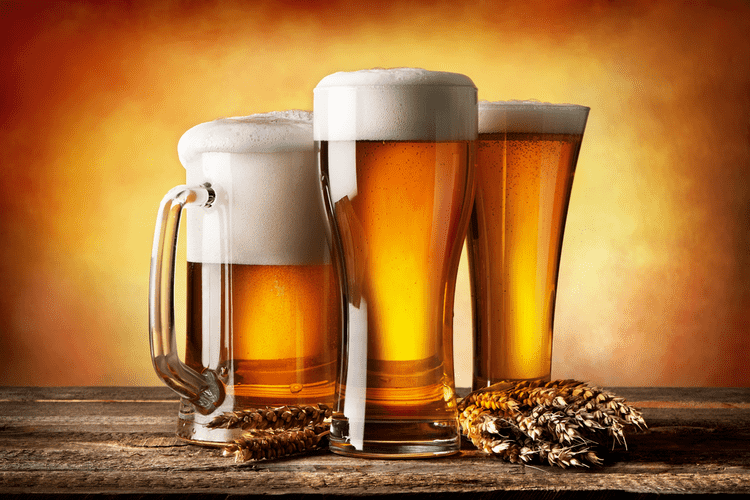Mentally, the constant racing thoughts and panic ease, and many begin sleeping through the night without waking in fear or sweats. These improvements come from addressing not just the symptoms of withdrawal, but also the damaged brain chemistry and nervous system behind them. At Nirvana Recovery, we often meet clients whose tremors come from other health factors. These include anxiety, blood sugar drops, or medical conditions that alcohol can make worse. If shaking lasts longer than eight hours, or is paired with confusion, dizziness, or mental fog, it’s more than a hangover. At Nirvana Recovery, we provide assistance with safe, medically supervised detox for precisely these situations, like addiction and withdrawal.
Why Mental Health Screening is Important for Substance Abuse Recovery
In addition to tremors, hangover shakes are often accompanied by a range of other symptoms. Some common hangover symptoms include headaches, nausea, vomiting, night sweats, thirst, dizziness, dry mouth, and stomach pains. By following these coping strategies, you can effectively manage hangover tremors and alleviate their impact on your daily life. However, it’s important to remember that the best approach is always prevention. Moderating your alcohol consumption, staying hydrated, and getting enough rest can significantly reduce the likelihood of experiencing hangover tremors. By understanding the causes of hangover tremors, individuals can take steps to prevent or manage them effectively.
Hangover Shakes: Causes, Risks & Prevention Strategies

The duration of hangover shakes can vary depending on several factors, including the amount of alcohol consumed and individual differences in metabolism. The body typically metabolizes alcohol at a rate of approximately one drink per hour, with no way to speed up this process or shorten hangover recovery time 2. Experiencing hangover shakes can be a distressing and uncomfortable outcome of a night of heavy drinking. While prevention is always the best approach, it’s important to know how to cope with hangover tremors if they Sober living house occur. Alcohol shakes, also known as alcohol tremors, can be a sign of alcohol withdrawal.
- Irritants like alcohol, drugs, spicy good, injury or bacteria can cause this condition causing the person to feel nauseous and unable to tolerate food.
- It is recommended to practice hydration strategies before, during, and after alcohol consumption to prevent dehydration and reduce the severity of hangover symptoms.
- These shakes can range from mild to severe, and they are often accompanied by other hangover symptoms such as headache, nausea, and fatigue.
- Take it seriously, and don’t hesitate to seek professional help if you need it.
- Shaking after drinking alcohol, known as hangover shakes or alcohol tremors, results mainly from alcohol withdrawal.
Types of Hangover Shakes
Avoiding strenuous physical activities during this time can help prevent further discomfort. It’s important to note that hangover shakes are generally temporary and subside as the body metabolizes the alcohol and recovers from the hangover. However, if the shakes persist or worsen over time, it may be necessary to seek medical attention.
When you drink too much, it can also increase weight, an added risk factor for heart problems. As the alcohol leaves the system, tremors and shaking can happen due to the effect that alcohol has on the brain. It also affects the area of the brain that controls movement and coordination.

If you or a loved one suffers from an alcohol use disorder, you’ve come to the right place. At the Mandala Healing Center, we offer evidence-based treatments that will help you regain control over your life and achieve long-term sobriety. But how can you tell if what you’re experiencing is just a normal hangover tremor or something more serious? GABA is the brain’s primary “chill-out” chemical, responsible for calming nerve activity and promoting relaxation. Alcohol enhances GABA’s effects, making you feel sedated and less inhibited.
Seeking immediate medical help is essential, as DTs can be life-threatening and require professional management to ensure safety and recovery. These tremors typically arise after a period of excessive alcohol consumption and often signal alcohol withdrawal. With regular alcohol consumption, the body adapts by producing less GABA (which calms) and more glutamate (which stimulates). When drinking stops, this imbalance can cause symptoms like shaking, anxiety, and increased heart rate. Hangover shakes typically start between 6 to 10 hours after the last drink and can peak within 24 to 72 hours, signaling the brain’s adjustment to the absence of alcohol.
We offer advice on services and locations who can offer treatment and not specific medical treatment as we are not a remote clinical advice service. Our team can advise you on which of our partner organisations is best suited to your needs and they will provide the appropriate medical help. We do not charge our customers for advice we only receive a commission from a provider if you begin treatment with them at no extra cost to you. Shaking, whatever the cause, is unpleasant, and you will want to know how to get rid of shakes after drinking. Alcohol poisoning occurs when you drink so much alcohol that your liver has major issues keeping up. It’s an overdose of alcohol, just like an overdose of any other illicit drug.
What are the Causes of Alcoholism
Choose alcohol addiction treatment at Nirvana Recovery Center for your path to lasting sobriety. At Nirvana Recovery, we often treat clients who delayed getting care because they thought they could manage it. In some cases, they arrived with worsening symptoms, including seizures and disorientation. Overall, the combination of hydration, vitamins, and minerals found in smoothies makes them a powerful tool for reducing hangover severity and enhancing recovery. If you’re finding that you are unable to stick to any of these practices, it may be a sign hangover shakes of a more serious drinking problem that could require professional help – like an alcohol rehab. Similarly, lemon is another ingredient that can alleviate symptoms of nausea and indigestion.
Prevention
Alcohol encourages urination, so you become more dehydrated despite drinking a lot of liquid. During a hangover, you may also sweat and vomit, which will also make you more dehydrated. You need water to function properly, so getting liquids back into your body will help the healing processes inside you. Another significant aspect is the impairment of glucose transport system in the brain.
The aftermath of a night of heavy drinking can be quite unpleasant, especially when it involves uncomfortable symptoms like hangover shakes. Understanding the duration of these symptoms and the recovery process can be helpful in managing hangover shakes. In most cases, hangover shakes will resolve on their own as the body processes the alcohol and returns to its normal state. However, there are certain situations where seeking medical attention is necessary. Signs of severe shakes that may require medical attention include extreme fatigue, severe headaches, rapid heart rate, or confusion. These symptoms could be indicative of more serious underlying conditions and should not be ignored.
Common Symptoms
When someone stops drinking, their nervous system reacts by becoming more active, which leads to involuntary trembling. This shift occurs because alcohol acts as a depressant, altering neurotransmitter https://bln.jlq.mybluehost.me/signs-of-substance-abuse-what-to-look-for/ activity in the brain. In most cases, hangover shakes are temporary and resolve on their own as the body recovers from alcohol consumption. However, there are instances when it is important to seek medical attention. Two situations that warrant medical evaluation are severe hangover shakes and alcohol withdrawal tremors. Finally, getting enough sleep is crucial for recovery from hangover symptoms including shakes.